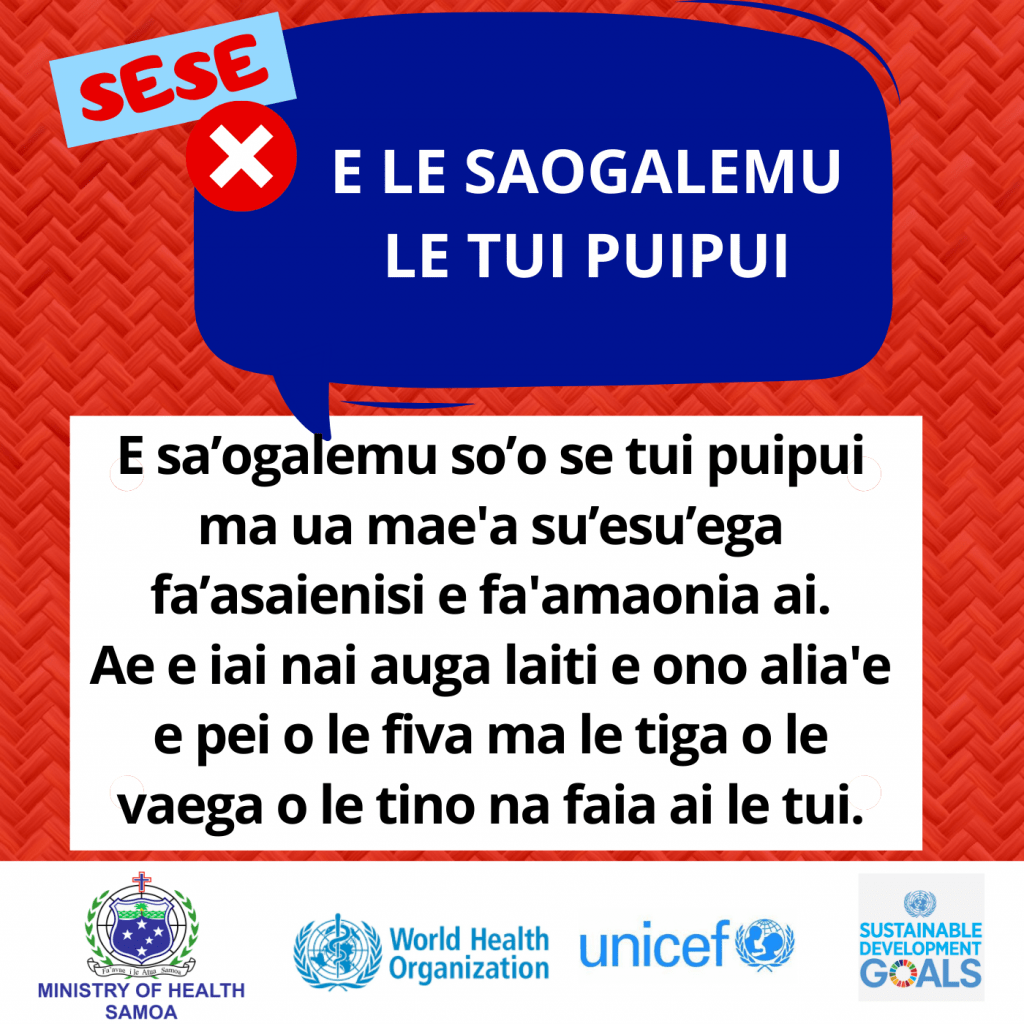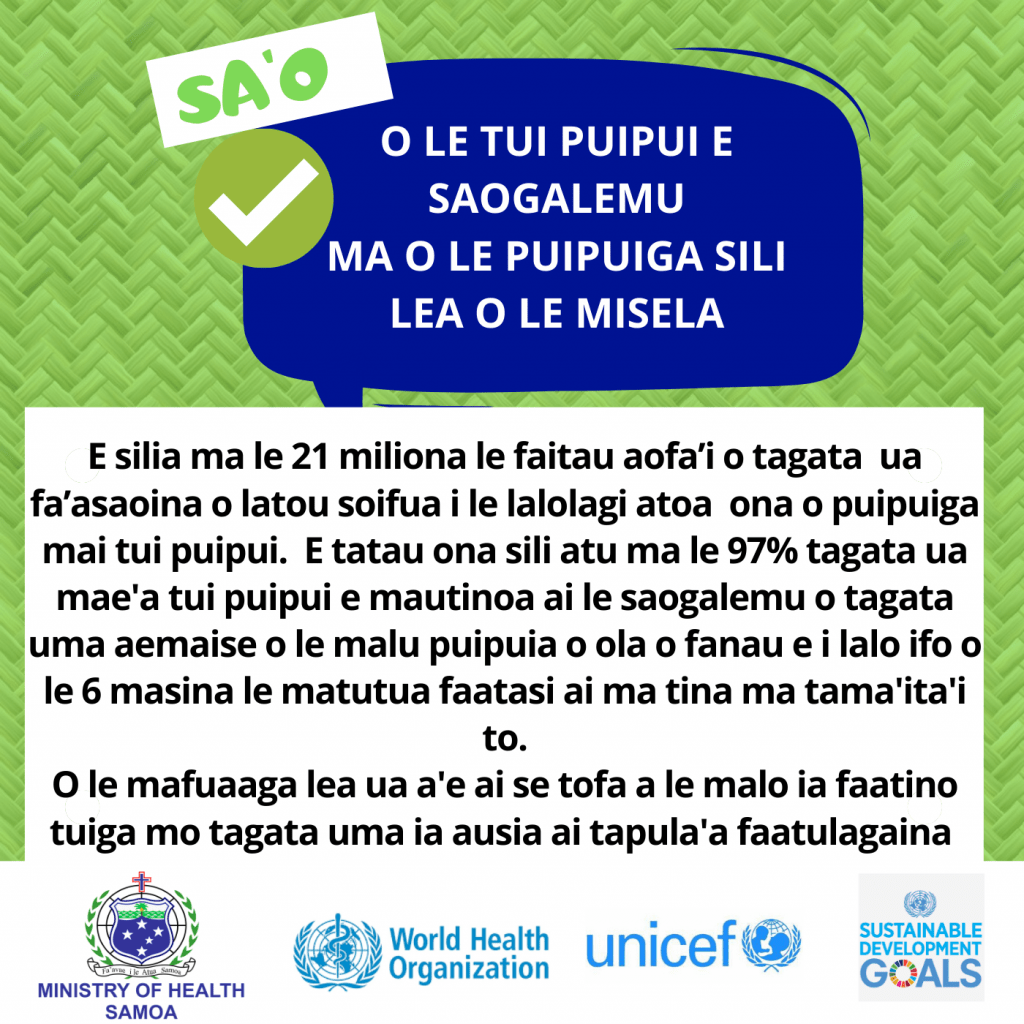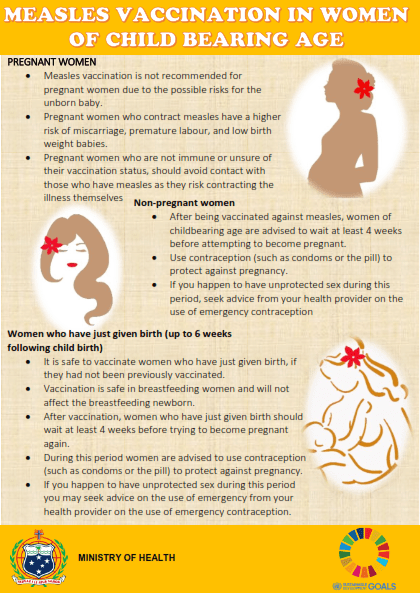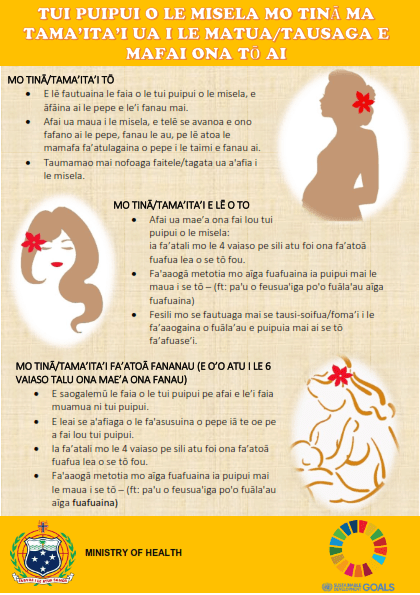- Home
- /
- Measles
General Information - Measles
MEASLES INFORMATION FOR HOME BASED CARE
- Isolate the sick family member to a room or a specific area in the home.
- Keep young babies (under 6 months) and unvaccinated pregnant women away from the patient and not in the same house.
- Do not share bedding, clothing, food or drinks with those unwell with measles.
- Encourage the patient to rest
- Encourage them to drink plenty of water, niu or fruit juice especially if they have a fever
- Help to reduce the fever with cool sponging and/or Panadol. You can also use lau nonu or lau ti to manage the fever.
- If they are hungry, provide them regular meals
- Breastfeeding mothers should practice exclusive breastfeeding of their infants
Parents and individuals should stay alert for measles Danger Signs – bring the patient to hospital immediately if they are getting worse, especially if they show signs of:
- High Fever (temperature)
- Dehydration (crying with no tears, dark urine or low volume)
- Vomiting
- Fits
- Drowsy or difficulty waking them up
- Not eating or drinking (especially children)
- Fast breathing or difficulty breathing
If a person gets measles they do not need to be vaccinated as they will be immune through natural infection. They will be provided life-time protection against the virus.
General information :
- Encourage other members of your family in the target age group (6 months – 19 years, and non-pregnant women 20 to 35 ) to get their vaccines.
- There are currently 10 fixed sites in Upolu and 5 fixed sites in Savaii for vaccinations (main hospital and health centres), including mobile teams in both Upolu and Savaii
Further Information:
Please contact the National Emergency Operations Centre on 997/911 if you have any further questions or visit the Ministry of Health website and Facebook page.
MEASLES INFORMATION FOR MEDICAL PRACTITIONERS
Key Points
- Measles activity remains high in many districts with many severe cases in infants.
- MoH Compulsory Measles Vaccination Campaign target groups: all children and teenagers aged 6 months to 19 years, and all non-pregnant women aged 20 to 35 years.
- Please encourage your patients who are eligible to be vaccinated.
- Encourage patients with mild symptoms to be cared for at home. Inform them of danger signs and the need to seek medical attention urgently if these develop.
- We request please to use the MoH Measles Clinical and Surveillance Form to record and report cases.
Measles diagnosis and management
- Measles is one of the most highly communicable infectious viral diseases, and transmitted by direct contact with infectious droplets or airborne spread. The incubation period is typically 10 after exposure (range 7 to 18 days).
- Measles typically presents with a 2 to 4 day prodromal illness with fever, cough, coryza, and conjunctivitis. A maculopapular rash then begins on the face and neck and becomes generalised.
- Measles in previously vaccinated people may present atypically, with milder symptoms and a slower progression to the rash
- Cases are infectious from 4 days before the prodromal to 4 days after the onset of the rash.
- Routine laboratory testing for measles is not recommended during widespread outbreaks.
- Patients with moderate to severe symptoms and signs should be referred to hospital. In Apia, the TTM APCC (outpatients) is open 24 hours for measles cases.
- Patients with milder symptoms can be cared for at home but family members need to be made aware of the danger signs that should prompt urgent medical review.
Vaccine – live attenuated vaccine and is highly efficacious. It generally well-tolerated. The risk of complications is low compared to the risk of complications from the disease, and 95% of the population is required for herd immunity
Complications :
- Occurs in 10% of cases – including pneumonia, otitis media, croup and diarrhoea
- Development of encephalitis in 1 in every 1000 patients, of whom 15% die
- Approximately 30% have permanent neurological damage
- Other complications include bronchiolitis, sinusitis, myocarditis, corneal ulcerations, mesenteric adenitis, ITP, and hepatitis
- Measles in pregnancy can cause miscarriage, stillbirth and pre-term delivery
Measles Vaccination Campaign Sites and Times
The designated sites/times are:
UPOLU
Services operating from 9am to 8pm Monday – Friday and 9am to 1pm Saturday:
- TTM Hospital
- Faleolo District Health Center
- Leulumoega District Health Center
- Lufilufi District Health Center
- Lalomanu District Health Center
- Poutasi District Health Center
- Saanapu District Health Center
- Samoa Family Health Association
- Wellness and Youth Friendly Centre at Matagialalua
Other clinics operating Monday to Friday, 9am – 5pm and 9am to 1pm Saturday:
- Samoa Tourism Authority Fale
- Samoan Red Cross
SAVAII
Services operating from 9am to 8pm Monday – Friday and 9am to 1pm Saturday:
- MT2 Hospital
- Safotu District Health Center
- Sataua District Health Center
- Foailalo District Health Center
- Satupaitea District Health Center
In addition, the regional mass vaccine fixed sites are being planned. Sites to be confirmed imminently.
Reminder:
- Staff from the Ministry of Health will be collecting the Measles Clinical and Surveillance Form from your clinic on a daily basis.
- For any further information, please contact the National Emergency Operations Centre (NEOC) on 997/911 or visit the Samoa Ministry of Health website.
INFORMATION FOR PREGNANT/NON-PREGNANT WOMEN
Mo Tinā/Tama’ita’i Tō – e lē fautuaina le faia o le Tui Puipui mo le Misela auā e a’afia ai le pepe e le’i fanau mai.
Mo Tinā/Tama’ita’i e le’o Tō – a maea ona faia lau Tui Puipui o le Misela ia faatali mo le 4 vaiaso pe sili atu ona faatoa fuafua lea o se Tō
To be added…
Measles Posters & Informational Flyers
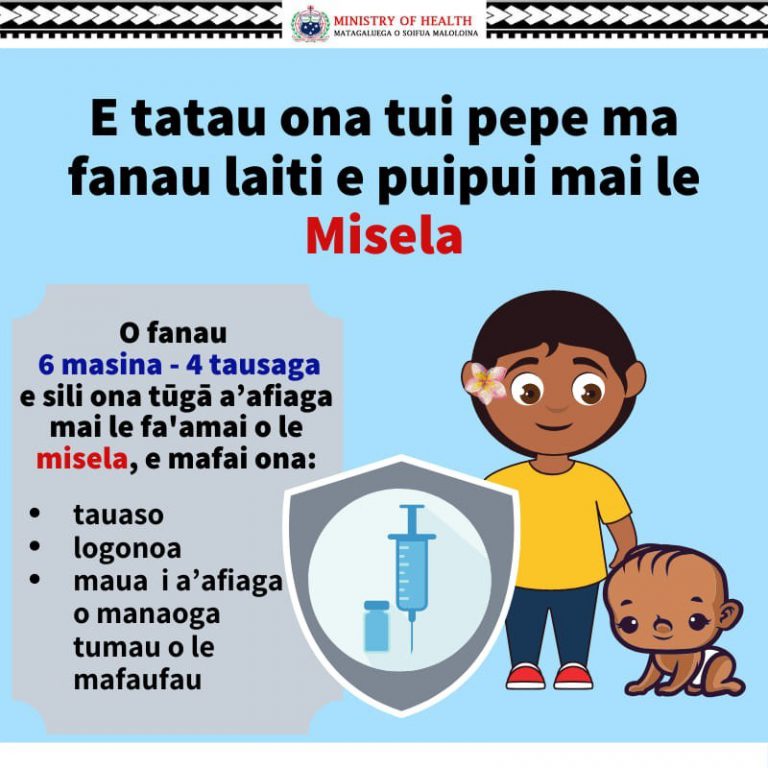
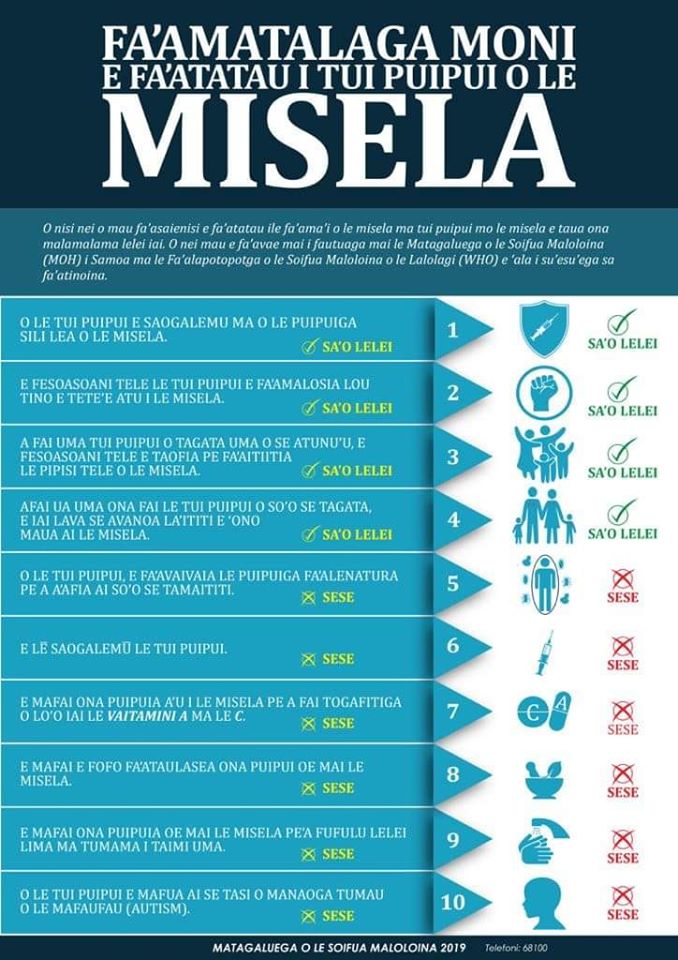
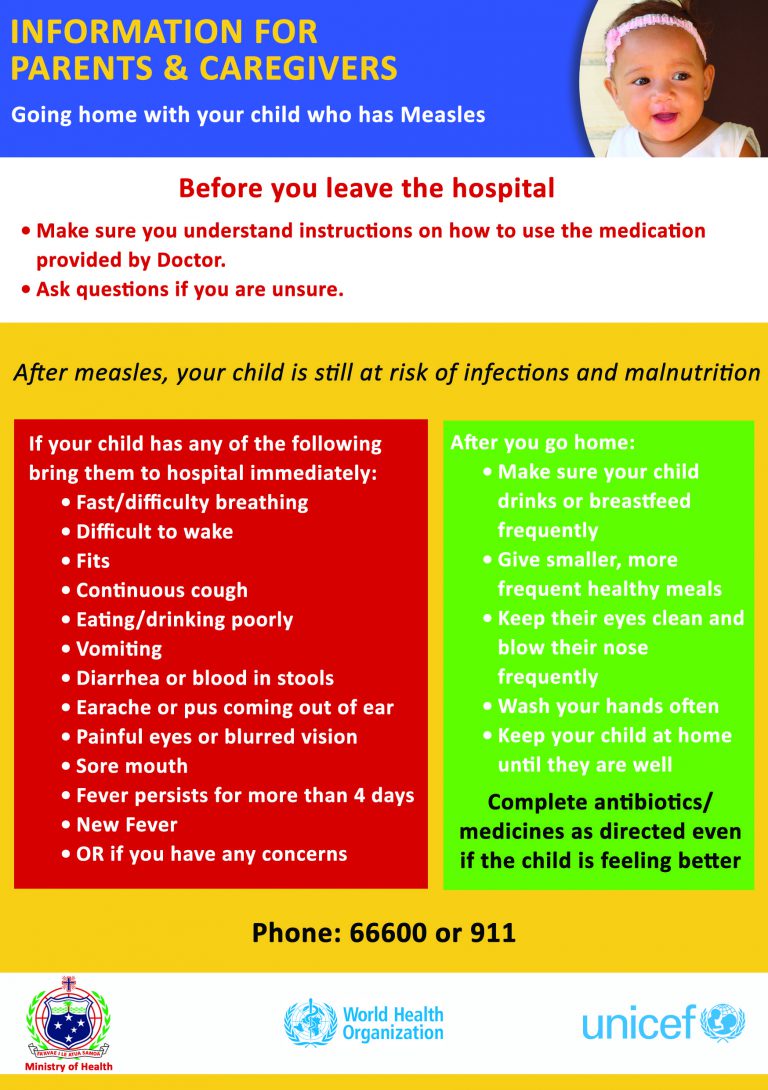
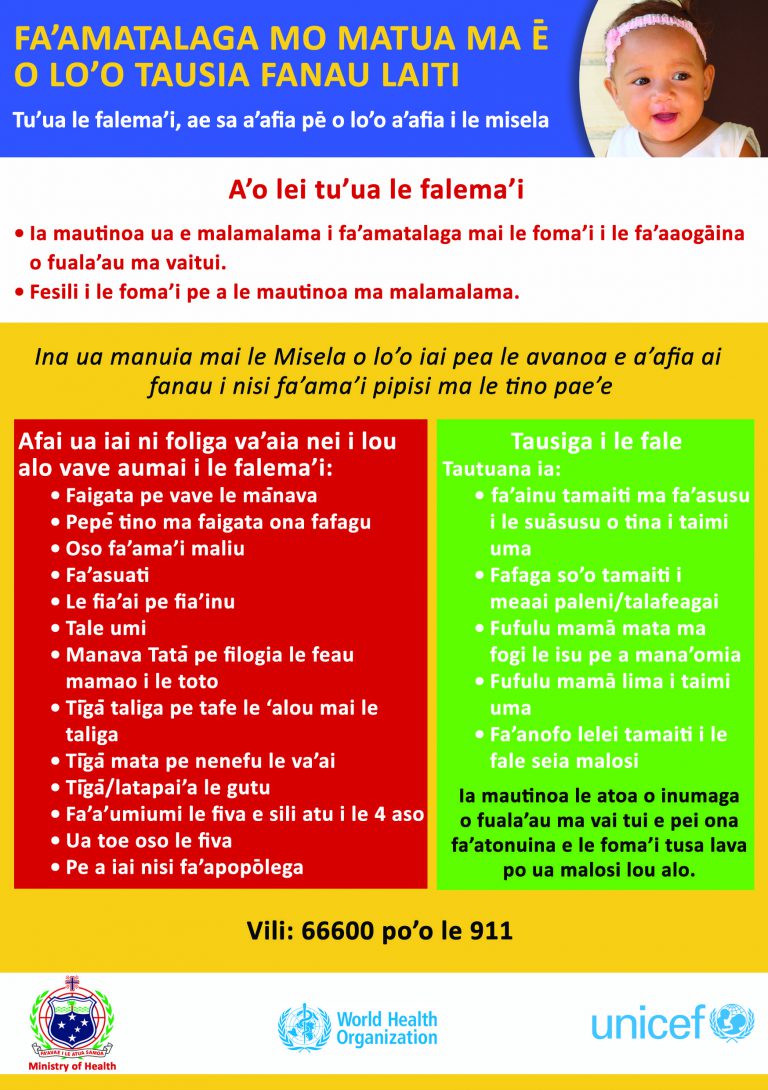
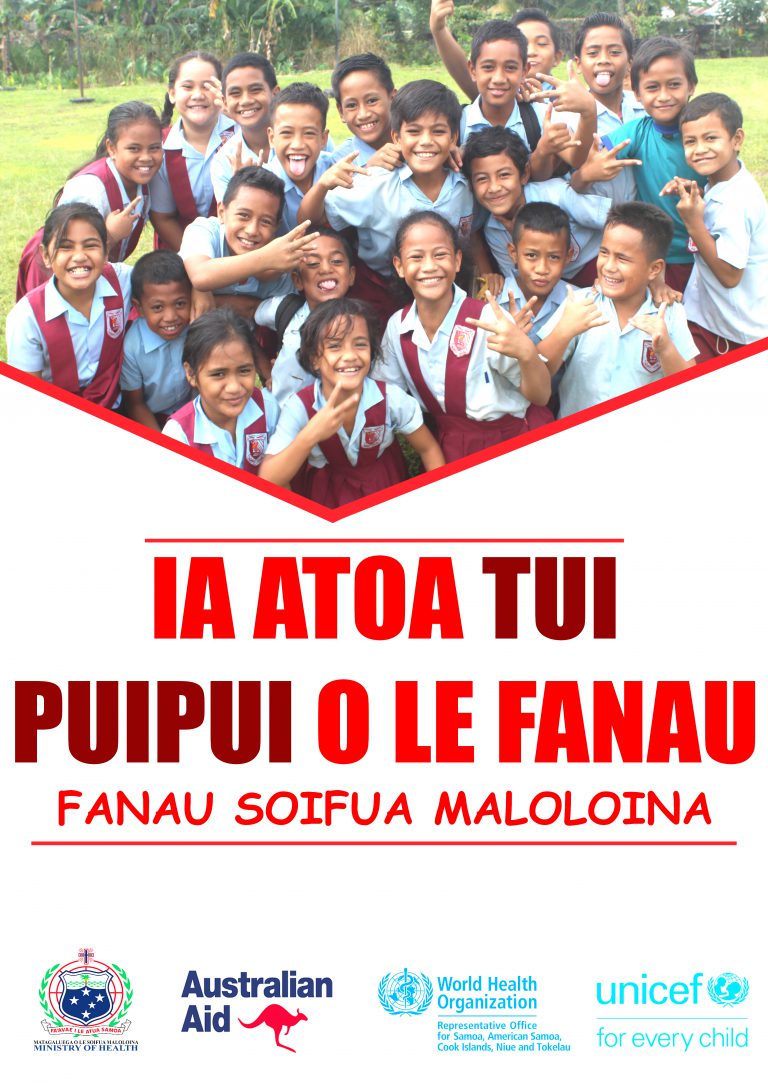
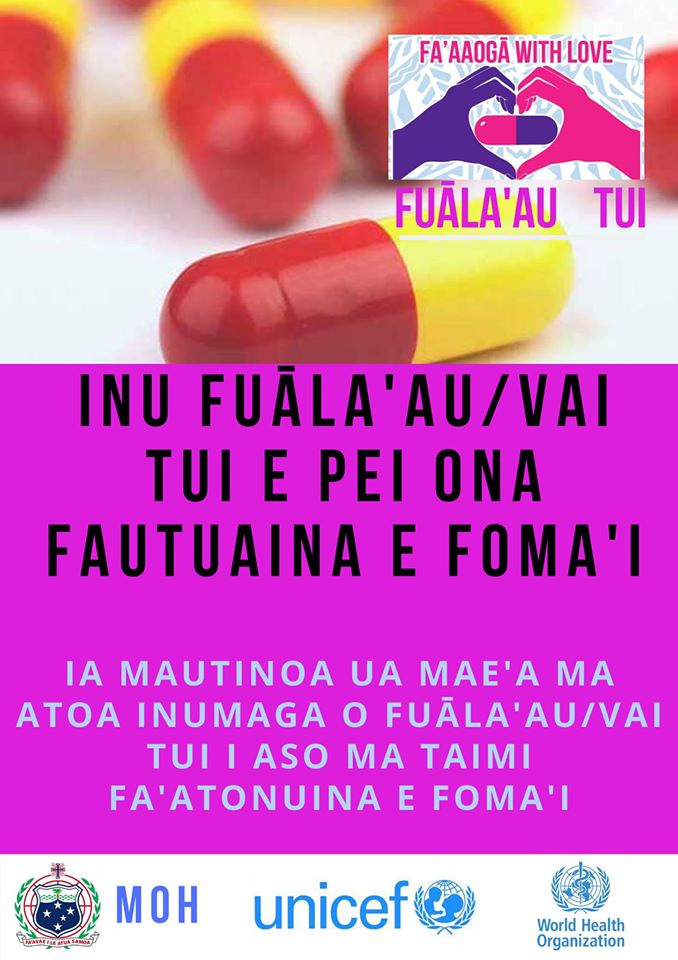
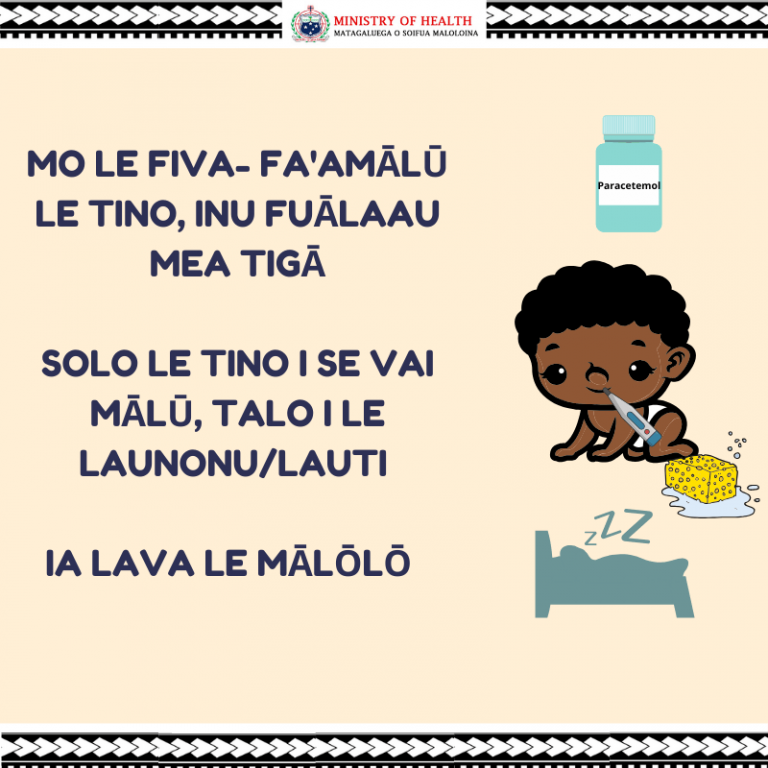
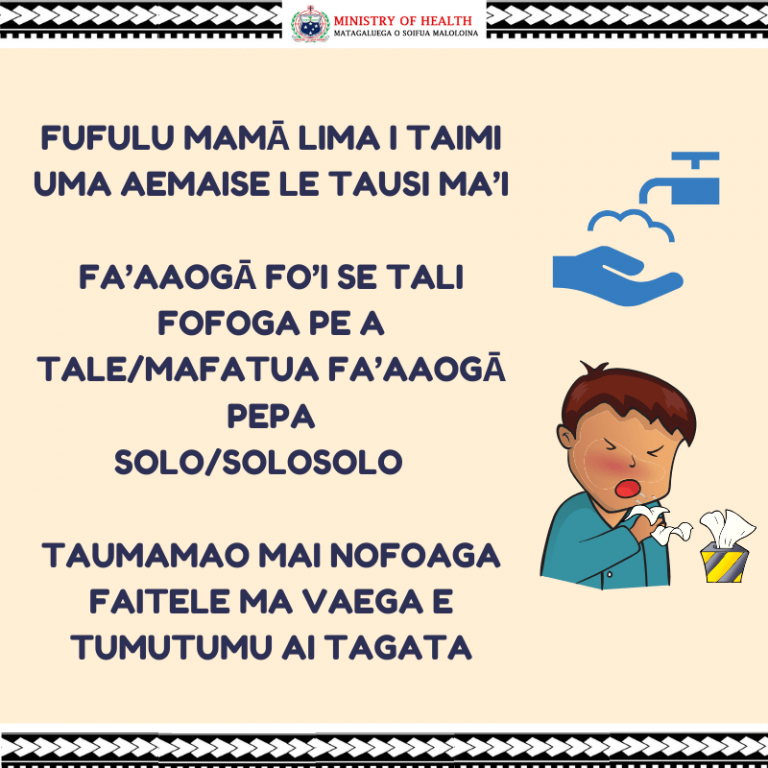
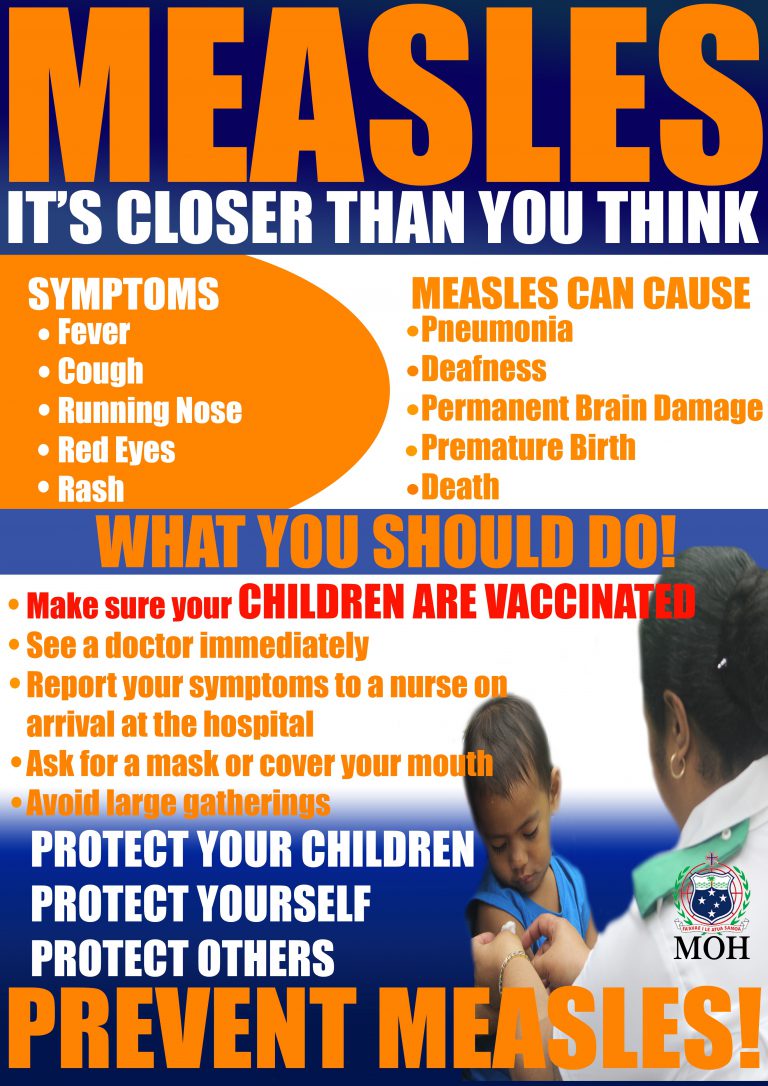
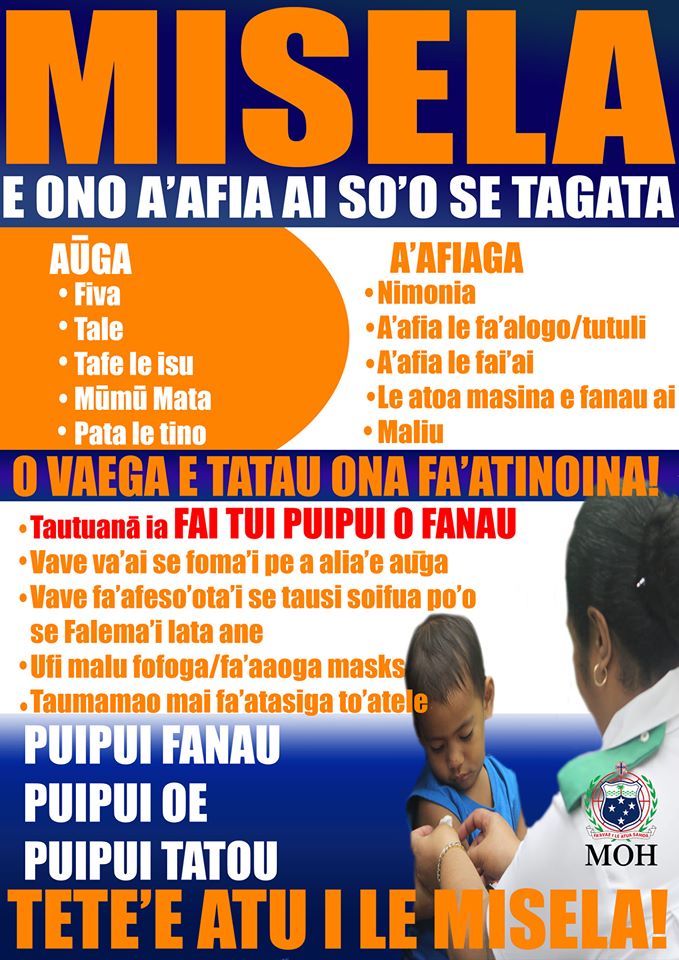
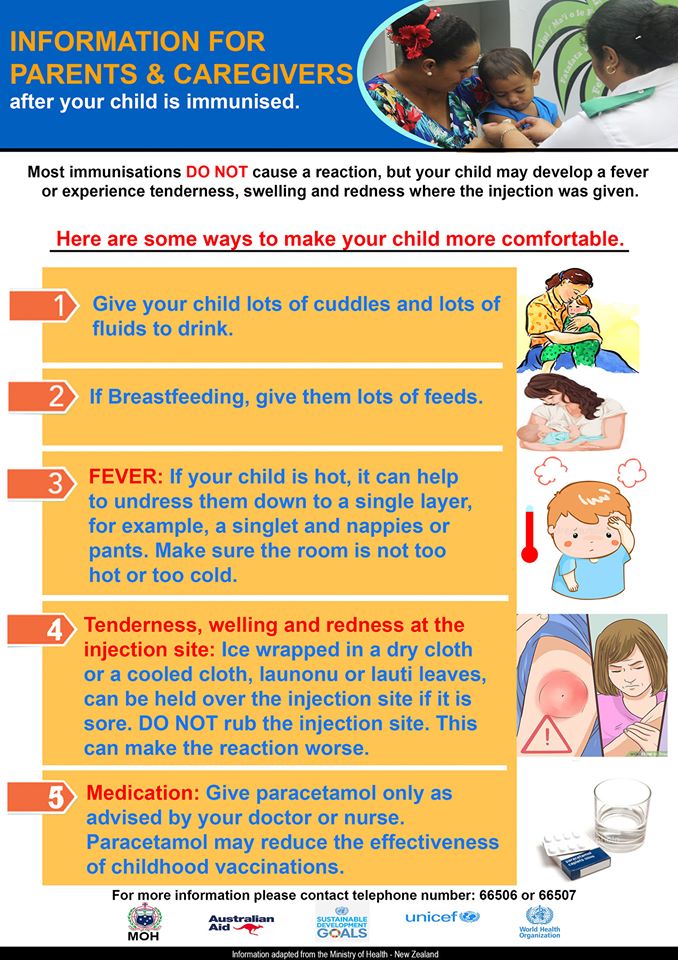
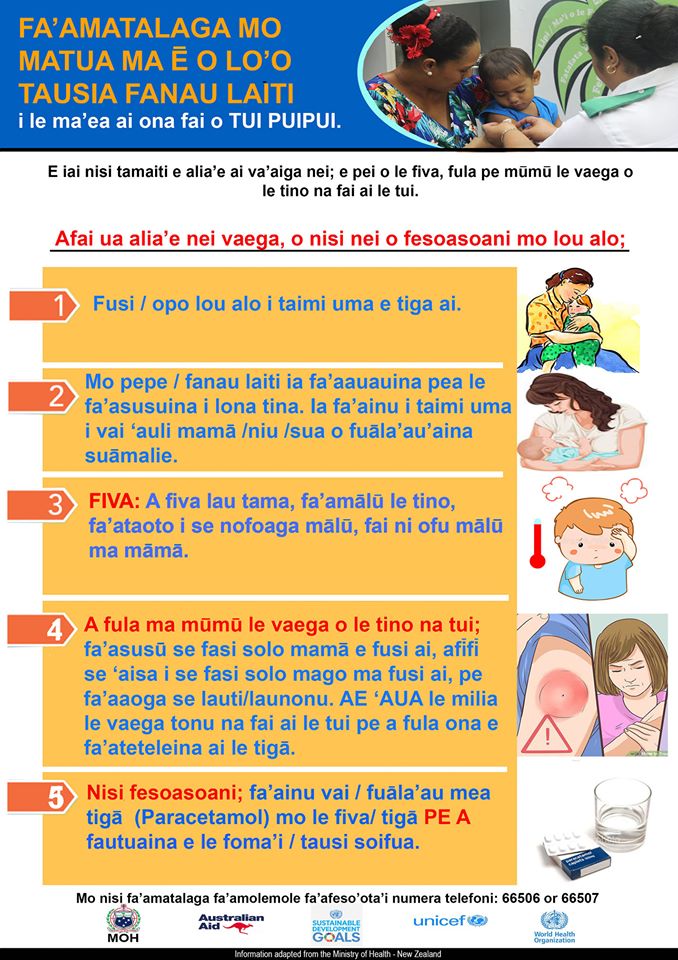
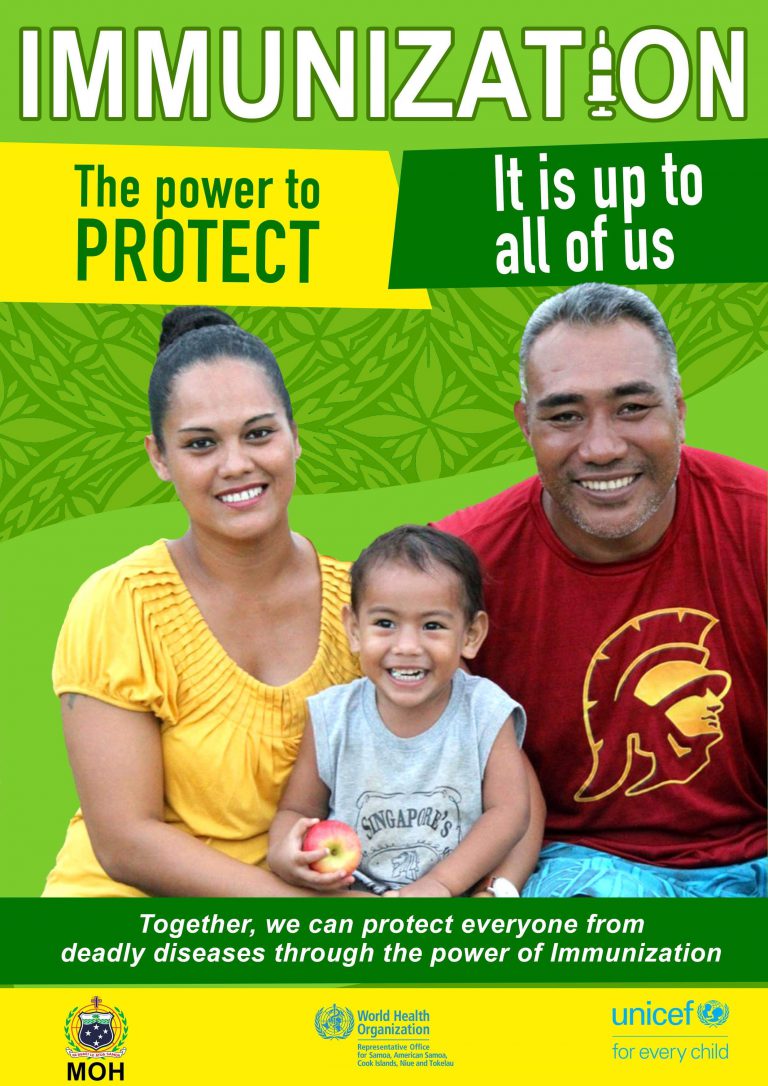
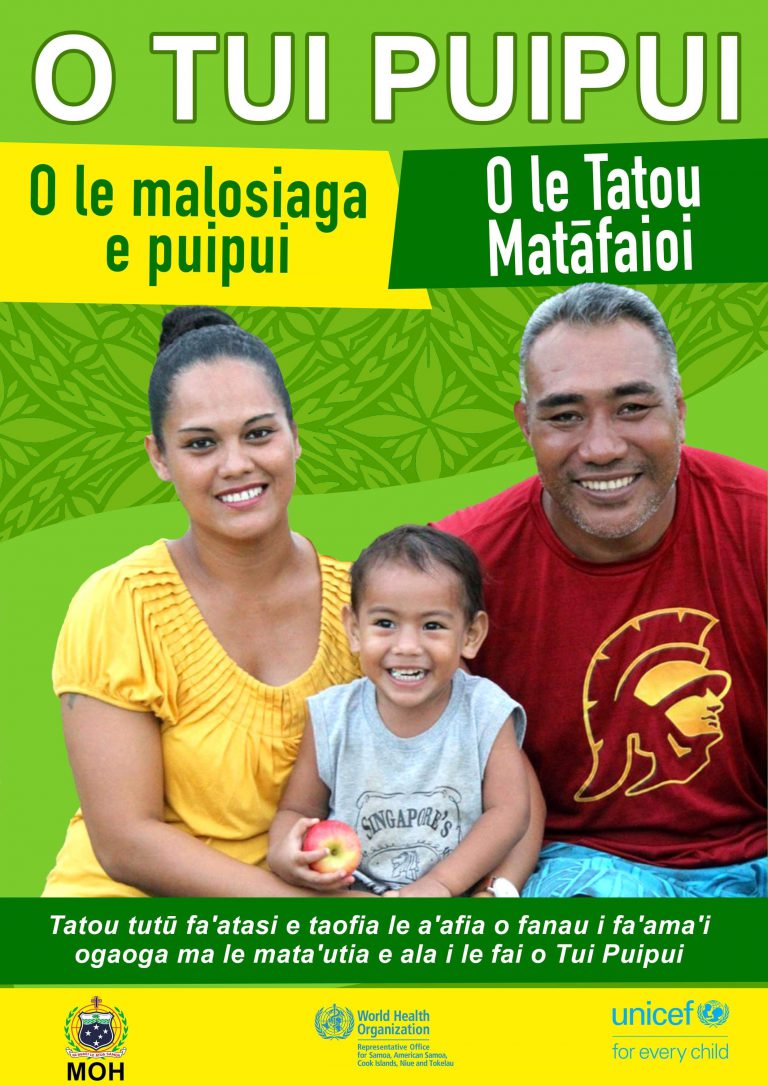


Myths & Facts - Measles


